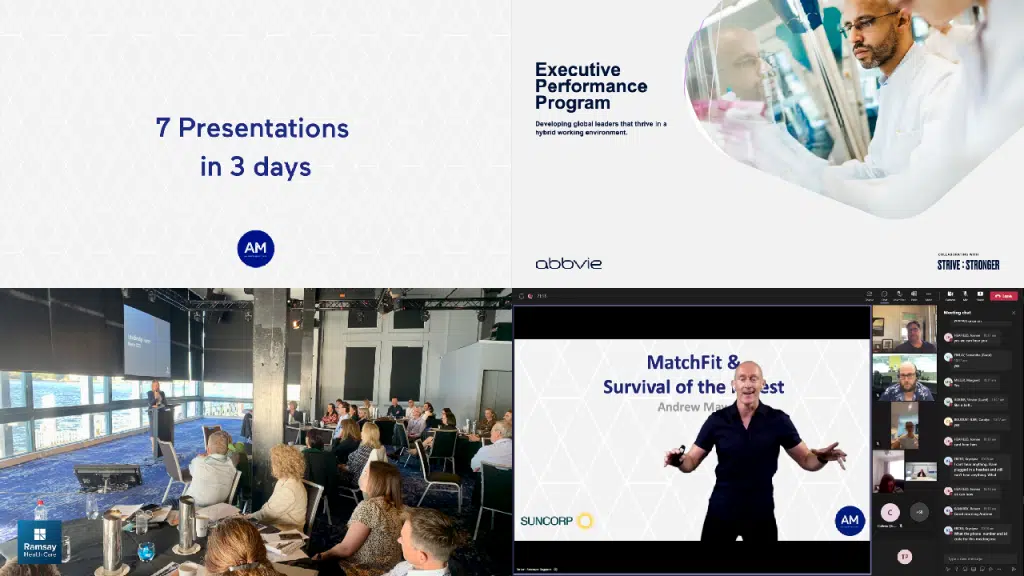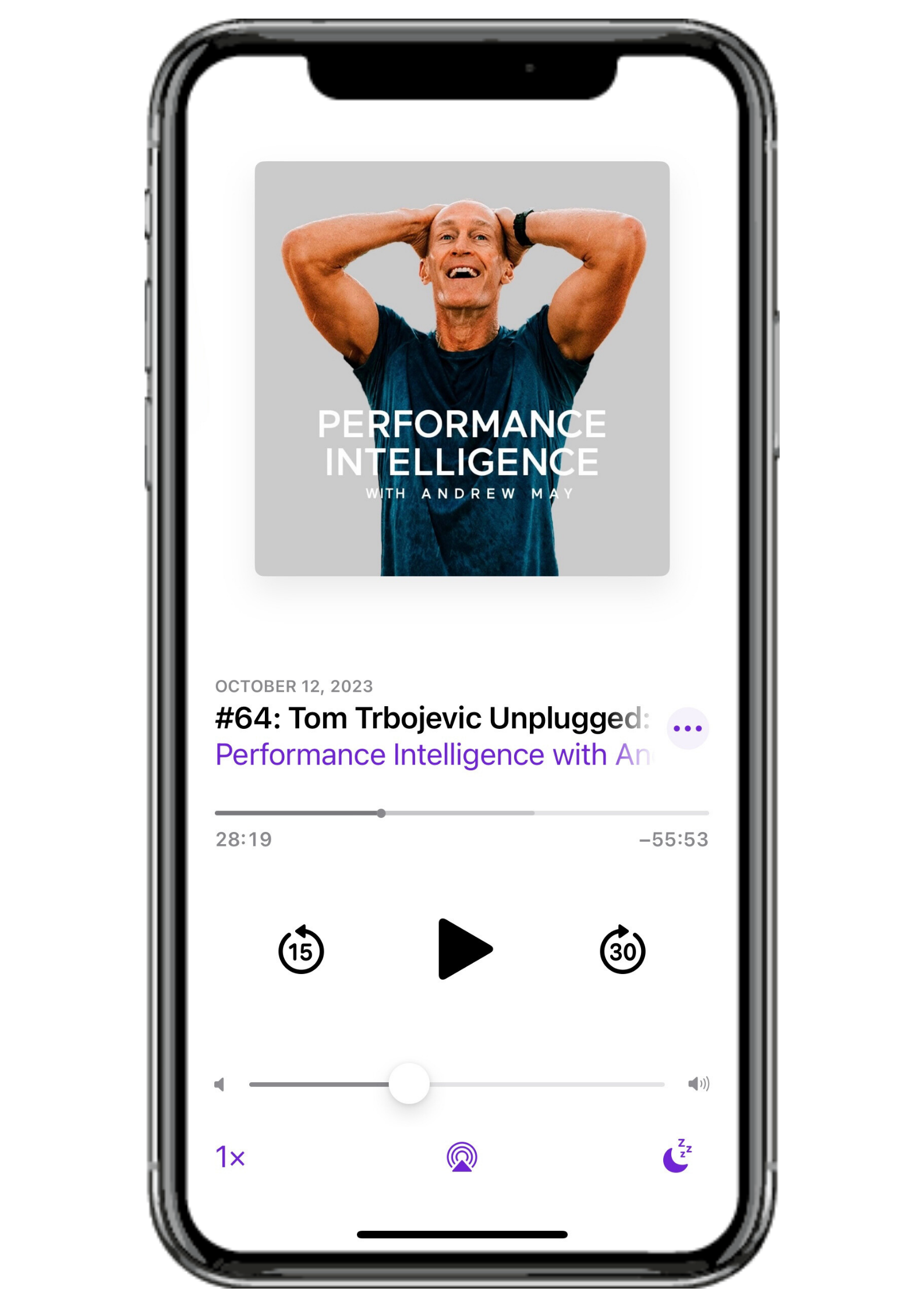There are only few weeks to go until the 2022 Australian NRL season kicks off. In my role as Mental Skills Coach for the Parramatta Eels, I have been working with the players, coaches and support staff in the off season with the goal of ensuring that we play our best football on the day, when it really matters.
During the off season and then throughout the brutal 24 rounds of football, the strength and conditioning staff do a fantastic job of getting the balance right between stress (training and competition) and recovery (regenerating the body and freshening up the brain).
Working in elite sport for more than two decades has taught me the importance of recovery and regeneration. The world’s best athletes and sporting teams now spend more time, more energy, more money and more resources on recovery than they do on training.
But when I ask corporate clients ‘what are your recovery strategies?’ I normally get a blank look, a look that implies I’ve just asked them the weirdest question in the world. Let me approach this in another way then – have you ever had a really good month or a good quarter at work and then crashed? Or maybe had a great year and then fallen flat the following year? This is normally a sign that you are not recovering properly and that you are not managing your body’s physiology. If you get sick on day 2 or 3 during holidays and suffer from weekend wipe out (a feeling of jetlag on the weekends), the same applies.
Surge Capacity is Spent. Burnout is on the Rise
Surge Capacity is a set of mental and physical adaptive systems that give us the extra energy we need to survive short periods of high stress. Our biology has not been designed for extended periods without respite or recovery. In a recent blog I detailed how over the past 18 months there has been very little ‘re’ with our lives void of ‘recovery, recharge, recalibrate, refresh and rebalance.’
And remember the pandemic came on the back of a fast-paced digital revolution, drought, floods, bushfires and an economic downturn. For many businesses and leaders, there has been no downtime, no ebb and no flow. Just constant bombardment from one event to the next.
More than 50 per cent of workers reported feeling burned out in the last year and latest reports indicate these figures are rising as we workers drift back into the office and as we adapt to the energy demands of hybrid work. Research suggests this figure rose by 10 per cent during the last 18 months in and out of lockdown. It has been, for many people, the straw to break the camel’s back, working longer hours and the inability to unplug from work key factors contributing to pandemic burnout.
The Solution = Adding a Seasonality to the way you work
If you resonate with any of this article so far, you need an Annual Recovery Plan. In fact, we all do. I have included a photo of my 2022 Annual Recovery Plan below and you can click here to download the Annual Recovery Plan PDF and write down when you are going to build in strategic recovery. In Australia and most countries in the southern hemisphere we take an extended break over Christmas.
I work at a high intensity throughout the year and take the majority of January off. For many people there is an oscillation between high intensity and periods of lower intensity throughout the year. In my role as a keynote speaker (especially now we are back doing some live events again), I know February, July/August and October are big months, or what we call ‘Conference Season.’ I have 22 presentations with a mixture of live, virtual and hybrid in February alone. In February my primary focus is delivering keynotes, launching new leadership and wellbeing programs, and keeping the focus on sales. That’s it. I have very little capacity for anything else.
While presenting this much in Feb is great for business and I do love presenting, if I presented at this intensity throughout the year I would either get stale and fatigue, burnout, or a combination of the two. So, I set my diary up to ‘harvest the crop’ during Conference Season and build in natural breaks around this, where I consciously down regulate and drop the intensity. I have purposely scheduled a 3-day Father and Son getaway with two mates from school at the end of Feb to punctuate the end of a hectic month and to take much-needed time out. And I will follow a similar rhythm throughout the year balancing periods of high intensity with conscious blocksof lower intensity. Having four children also helps me find a seasonal rhythm as after each of the 10-week school terms, there is a natural break and drop in output with school holidays.
7 tips to Help You Recharge
- Plan your break. To make your next holiday stress-free and arrive feeling refreshed rather than zapped, invest time to research locations and earmark relaxing activities to try. Pack early, keep important paperwork – including your passport and travel documents in the same place – and make sure you get a good night’s sleep the night before you leave.
- Leave work in the office. Don’t be tempted to take incomplete reports or proposals with you, in the hopes of working on them by the beach. Be disciplined and leave work in the office. Besides, is the world really going to end if you don’t do that extra board report right now?
- Bury the laptop. Cure your technology addiction by leaving your laptop or tablet in the office or at home and far, far away from your holiday. Don’t get sucked towards the evil screen. And stay off your mobile phone as much as possible too. In fact, why don’t you try to wean yourself off your digital devices? Seriously – turn off technology and start recharging properly instead – and make sure your colleagues know that you won’t be checking in 24/7.
- Prune your schedule. Don’t jam-pack your holiday the same way you schedule your working week. Try to leave margin and space to simply chill and have time-out by not spending every waking moment of your holiday doing things. Also, consider staying in the one place. Avoid the temptation to tick off the tourist highlights in Rome, Venice and Napoli in just three-days. Try taking it slow for a while.
- Try something new. Engage in something totally left field to give your brain a rest from the normal day-to-day grind. Try windsurfing, paddle a kayak, recite some phrases in French, do yoga, a cooking class or book in for a relaxing massage.
- Get up at the same time every day. A big trap on holidays is the circadian rhythm ‘free running cycle’, where you find yourself sleeping later each night and not waking up until late morning. Go to bed and get out of bed at your regular times. If you are sleep-deprived, reward yourself by going to bed an hour earlier each night, or by having an afternoon siesta.
- Learn to relax. As a reformed workaholic, I had to learn to relax. I can remember watching movies and at the same time thinking (sometimes even writing) about unfinished to-do lists. Embrace the slow. Breathe in. Breathe out.
Lock it in the diary
One more thing before you finish reading this article and race off to your next appointment. Grab your diary – now! Sit down for 15 minutes and map out your Annual Recovery Plan for the next 12 months. Even better, if you are in a permanent relationship sit down with your partner and plan your next holiday and quarterly mini breaks. It’s amazing that even knowing about an upcoming getaway can help you through the crappiest of days. Lock in weekly activities to help you get regular recovery points too and make yourself accountable.
Setting an Annual Recovery Plan is a proven strategy to help busy people get through the mountain of work that we are all facing these days. I know a lot of these strategies are so simple – but as human beings we have a special ability to make simple things very complex. We make life so much harder than it needs to be by burning ourselves out and constantly being distracted by technology and digital devices. Maintaining the discipline and sticking to an Annual Recovery Plan could just be the missing piece of the puzzle that helps you sustain performance and take control back of your life.
RECHARGE!
Andrew May





